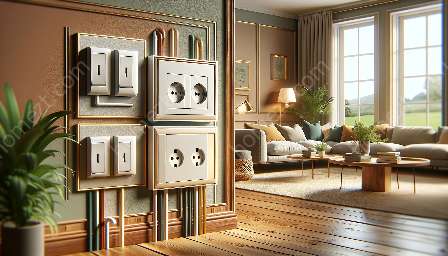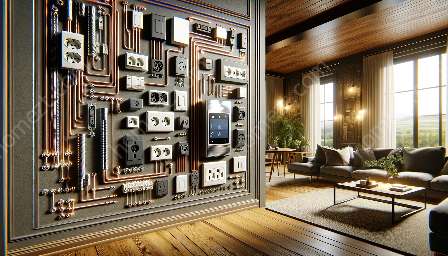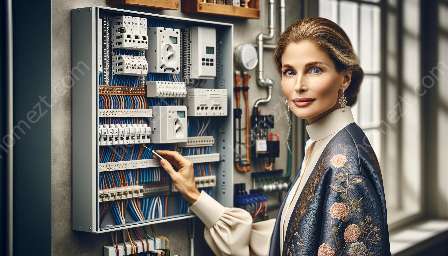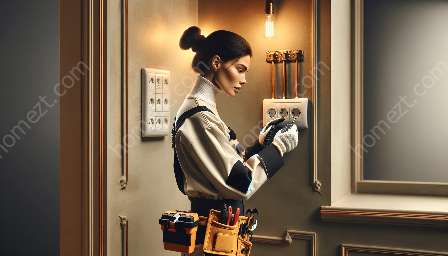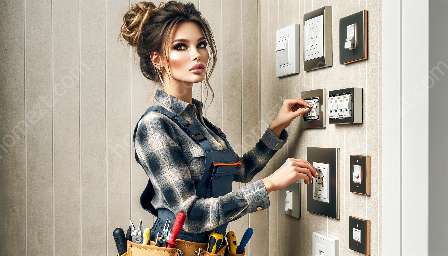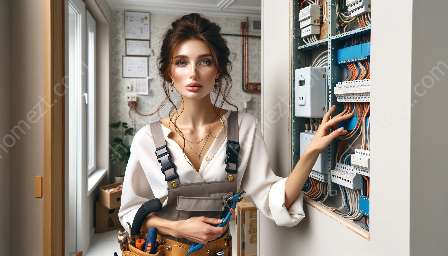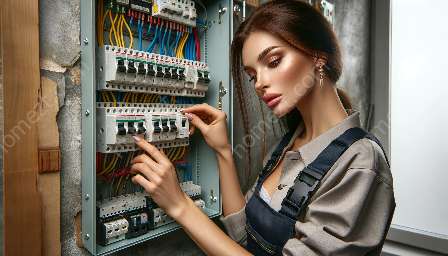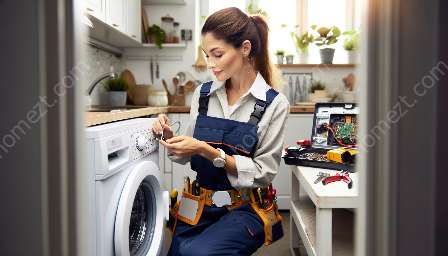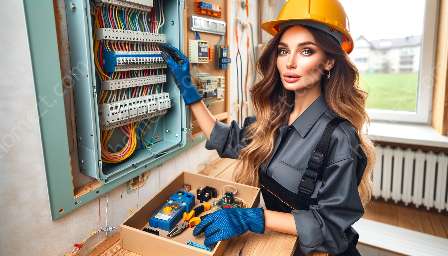Electrical wiring is the backbone of a building's electrical system. It involves the installation of wires to transmit electricity effectively and safely. In this guide, we will delve into the essentials of electrical wiring, including safety measures, types of wires, and common issues. We will also explore its connection to electrician services and domestic electrical needs.
Understanding Electrical Wiring
Electrical wiring refers to the network of conductors, cables, and other devices used to transmit electricity from a power source to various outlets and appliances within a building. It is a critical aspect of any electrical system, ensuring the safe distribution of electricity to meet the demands of modern living.
Essentials of Electrical Wiring
When it comes to electrical wiring, several key components and concepts must be considered to ensure safety and efficiency. These include:
- Wires and Cables: Wires are the essential components of any electrical wiring system. They are typically made of copper or aluminum, and their size, insulation, and capacity determine the amount of current they can safely carry. Cables consist of multiple wires bundled together, providing a convenient way to run and protect electrical circuits.
- Conductors: Conductors are materials that allow the flow of electrical current. In electrical wiring, copper and aluminum are commonly used as conductors due to their excellent conductivity properties.
- Insulation: Insulation is a crucial component of electrical wiring, as it prevents the exposure of live wires and minimizes the risk of electrical shocks and short circuits. Different types of insulation materials are used based on environmental and safety requirements.
- Circuit Breakers and Fuses: These protective devices are essential for safeguarding electrical circuits from overloads and faults. They interrupt the flow of electricity when an abnormal condition is detected, preventing potential hazards such as fire or electrocution.
Safety Measures in Electrical Wiring
Working with electrical wiring requires strict adherence to safety guidelines to mitigate the risks associated with electricity. Some crucial safety measures include:
- Turn Off Power: Before working on any electrical wiring, it is essential to turn off the power at the main circuit breaker to prevent electric shock or injury.
- Use Proper Tools: Electricians use specialized tools designed for working with electrical wiring, such as wire strippers, voltage testers, and pliers. Using the correct tools reduces the risk of accidents and damage to the wiring.
- Inspect for Damage: Regular inspection of electrical wiring is necessary to identify any signs of wear, damage, or deterioration. Damaged wiring can pose significant safety hazards and should be addressed promptly by a qualified electrician.
- Compliance with Codes: Electrical wiring must comply with local building codes and regulations to ensure safety and functionality. Hiring a licensed electrician is crucial to meet these requirements and avoid potential legal and safety issues.
Types of Electrical Wiring
There are several types of electrical wiring used in different applications, each designed to meet specific electrical and environmental conditions. Some common types of electrical wiring include:
- Non-Metallic Sheathed Cable (NM): Also known as Romex, NM cable is commonly used for residential wiring. It consists of two or more insulated conductors and a bare ground wire encased in a plastic sheath, providing protection against physical damage and moisture.
- Armored Cable (AC): AC wiring consists of insulated conductors wrapped in a flexible metal sheath, providing additional protection against potential damage from rodents, impact, or exposure to chemicals.
- Conduit Wiring: Conduit wiring involves running wires through metal or plastic conduits, offering enhanced protection and flexibility. It is commonly used in commercial and industrial settings where wiring needs to be exposed or subject to harsh conditions.
- Underground Feeder (UF) Cable: UF cable is designed for direct burial in the ground and is often used for outdoor lighting, pumps, and other applications where wiring is exposed to moisture and the elements.
Common Issues with Electrical Wiring
Electrical wiring systems can develop various issues over time, which may compromise safety and function. Some common problems associated with electrical wiring include:
- Overloaded Circuits: Overloading a circuit by connecting too many appliances or devices can lead to overheating and potential fire hazards. It is essential to distribute electrical loads evenly and use circuits as intended.
- Loose Connections: Loose electrical connections can cause arcing, overheating, and potential damage to the wiring system. Regular inspection and maintenance by a qualified electrician can help identify and address loose connections.
- Aging and Deterioration: Over time, electrical wiring may deteriorate due to environmental factors, wear and tear, or aging. This can lead to insulation breakdown, short circuits, and other electrical failures, emphasizing the importance of regular maintenance and inspection.
- Improper Installation: Amateur or substandard installation of electrical wiring can result in safety hazards, non-compliance with codes, and unreliable performance. It is crucial to engage qualified electricians for the proper installation of electrical wiring to ensure safety and functionality.
Electrician Services and Domestic Electrical Needs
Electricians play a crucial role in ensuring the safety, functionality, and efficiency of electrical wiring systems in both residential and commercial settings. Their services encompass a wide range of tasks, including:
- Installation and Maintenance: Electricians are responsible for the installation, repair, and maintenance of electrical wiring, ensuring that it meets safety standards and compliance requirements.
- Troubleshooting and Repairs: When electrical issues arise, electricians utilize their expertise to diagnose problems, perform necessary repairs, and restore the functionality of electrical systems.
- Upgrades and Renovations: Electricians assist with electrical system upgrades, renovations, and expansions, tailoring the wiring infrastructure to accommodate evolving electrical needs and technological advancements.
- Emergency Services: Electricians provide emergency response services to address electrical failures, power outages, and urgent safety concerns, ensuring prompt resolution and minimizing disruptions.
For domestic services, electricians address a broad spectrum of electrical needs, including:
- Lighting and Fixture Installation: Electricians install and repair lighting fixtures, ceiling fans, and other electrical components to enhance the ambiance and functionality of residential spaces.
- Appliance Wiring and Repairs: Electricians handle the wiring, installation, and repair of appliances, ensuring proper functionality and safety compliance.
- Home Automation Integration: With the rising popularity of smart home technologies, electricians assist in integrating and configuring home automation systems, enhancing comfort and energy efficiency.
- Safety Inspections and Compliance: Electricians conduct electrical safety inspections, identify potential hazards, and ensure compliance with electrical codes and regulations to safeguard residential properties.
Conclusion
Electrical wiring is a fundamental aspect of building infrastructure, requiring careful consideration of safety measures, types of wiring, and maintenance practices. By understanding the essentials of electrical wiring and its connection to electrician services and domestic needs, individuals can ensure the safety, reliability, and efficiency of their electrical systems. Engaging qualified electricians for professional installation, maintenance, and repairs is indispensable for promoting electrical safety and peace of mind in both residential and commercial environments.





